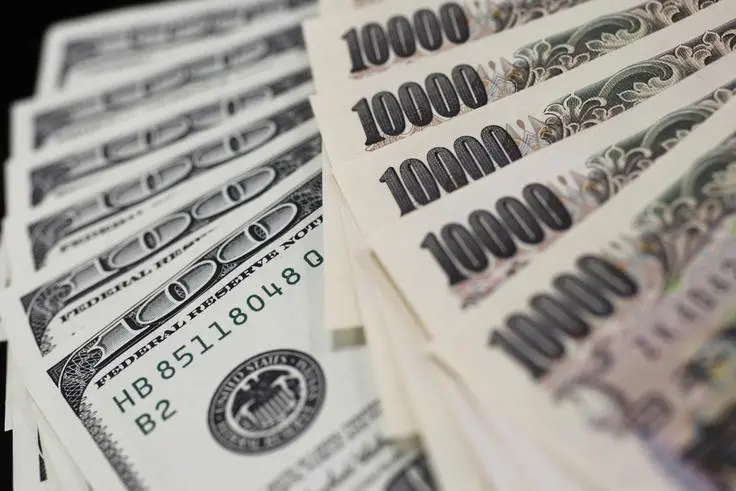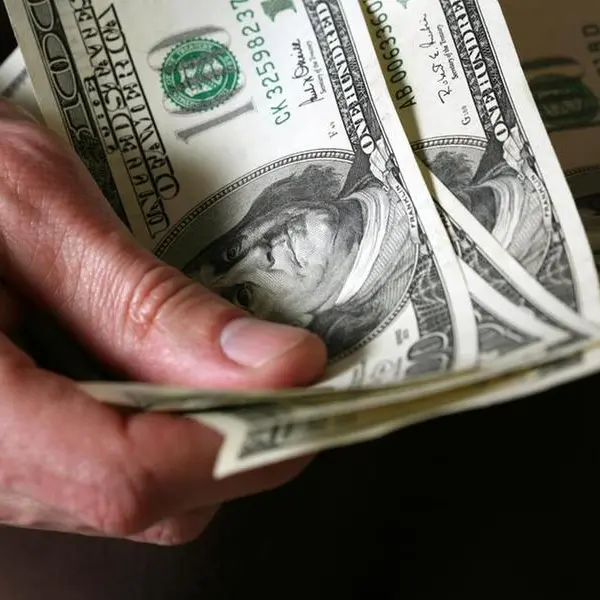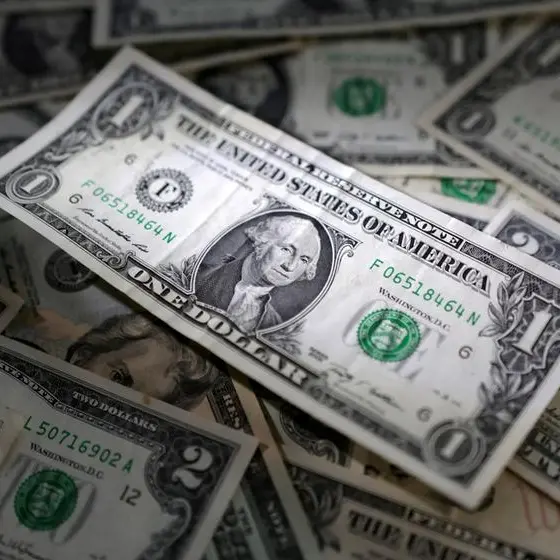PHOTO
SINGAPORE - The yen retreated on Friday from a 2-1/2 month high hit after of a jump in Japanese inflation, while the dollar was set for its third weekly drop in a row as traders calculated the start of Donald Trump's second term has been mostly bluster on the tariff front.
The yen broke through chart resistance at 150 per dollar overnight and strengthened as far as 149.285 per dollar, while Japanese government bonds were sold off after Japan recorded core inflation running at its fastest pace for 19 months in January.
But the yen and yields fell back as Bank of Japan Governor Kazuo Ueda warned the central bank could step up government bond buying if long-term interest rates rise sharply.
The euro was up 0.8% overnight and was steady in Asia at $1.0504, with traders awaiting an election in Germany on the weekend where polls point to a conservative coalition win.
The dollar nursed broad losses as bulls who had built up big long positions in anticipation of a trade war have backed off while Trump equivocates about tariffs.
Trump has slapped an additional 10% tariff on Chinese goods and announced plans to reimpose steel and aluminium levies from his first term, but suspended threatened tariffs on Canada and Mexico while numerous others remain - as of yet - only threats.
"It was a very one-sided trade and very heavy long positioning," said Jason Wong, strategist at BNZ in Wellington.
"Some of those longs are becoming impatient because the only thing he has done is put (a) 10% (tariff) on China - so the market is taking some of that money off the table."
Wong said evidence that Japan's inflation was picking up - the core consumer price index rose to an annual 3.2% against expectations for 3.1% - also bolstered the case for higher Japanese rates at a time when the rest of the world might be cutting, and so was buoying the yen.
The yen has gained around 3.4% on the dollar through February so far and interest rate markets have priced in a 25 basis point rate hike by September.
The yen tumbled after BOJ Governor Ueda's warning to as low as 150.73 per dollar before paring some losses as the BOJ chief reiterated more rate hikes could come if the economic picture supports it. The dollar was last up 0.42% at 150.27 yen.
Yen weakness on Friday was likely more due to profit taking rather than a reassessment of rate-hike bets, but the upside for yen below 150 per dollar appeared limited for the time being, said Nomura Securities currency strategist Jin Moteki.
"BOJ officials could push back market expectations," if market pricing becomes too aggressive and the yen appreciates rapidly, while additional U.S. tariffs could boost the dollar, he said.
A remark from Trump that a trade deal with China was possible lifted the trade-sensitive Australian and New Zealand dollars.
Comments from his Treasury secretary, Scott Bessent, that the administration had no plans to increase long-dated debt sales put downward pressure on yields and the dollar.
The dollar index on Thursday touched its lowest for 2025 at 106.29 and was last at 106.40.
The Aussie and kiwi are trading at their highest levels this year despite rate cuts on both sides of the Tasman this week, and New Zealand's central bank flagging more to come.
Australia is in a position where there could be some more decreases in interest rates but policymakers have to be cautious, the country's top central banker said on Friday.
The kiwi touched $0.5772 on Friday morning, while the Aussie has broken above 64 cents for the first time this year and touched $0.6409.
Trump said Chinese President Xi Jinping would visit the U.S., without giving a timeline, which sent up the yuan to a one-month high in onshore trade on Thursday on hopes that a deal might be reached to avert an all-out trade war.
In offshore trade the yuan was steady at 7.2385 per dollar on Friday.
Sterling touched its highest since mid-December at $1.2674.
Later on Friday purchasing managers' index indicators are released worldwide.
(Reporting by Tom Westbrook in Singapore and Brigid Riley in Tokyo; Editing by Jamie Freed and Kim Coghill)





















